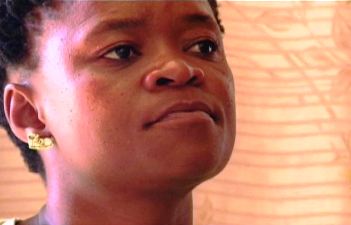In a country often referred to as the murder and rape capital of the world, one group of people are especially at risk – lesbian women. Despite having some of the most progressive laws in the world to protect them, they are increasingly the target of a particularly heinous crime, so-called “corrective rape”. Fickling tells the brave story of a young lesbian woman, Oyama Mbopa who lives in a township in Cape Town. She was raped at the young age of 15 when she was still at school. She was openly gay even then. One day on her way home from school, she was approached by a man from her community, who dragged her into a small passage at knife point before raping her. “It’s because of my sexuality, so that we can be ‘cured’, so that we can start dating men. Or just be straight. It’s what they call curative rape.”
Lesbian women have become especially vulnerable
Oyama’s attacker was eventually caught and sentenced to five years in prison. But gay activists say this is seldom the case. They estimate that 10 lesbians are raped per week in Cape Town alone. Since 1998 more than 30 of these hate crimes led to the victims’ death. Experts believe it’s only the tip of the iceberg. It’s estimated that only one in nine South African rape victims report this to police. Lesbian women have become especially vulnerable and gender experts believe our patriarchal and violent society play a pivotal role.Despite bold programmes by organisatons like the Sonke Gender Justice Network who hold workshops in townships with young men to change their attitudes towards women and violence,women like Oyama say they still struggle with a society who doesn’t want to accept their sexuality.
– By Produced by UN Television’s Gill Fickling


